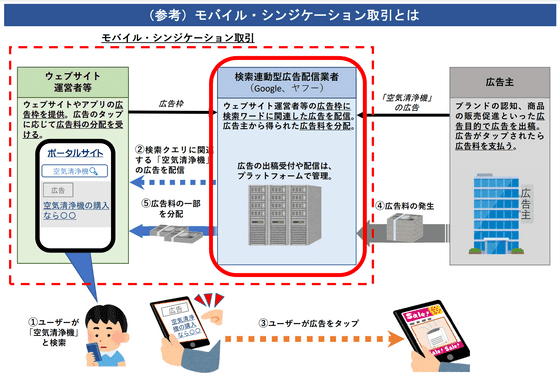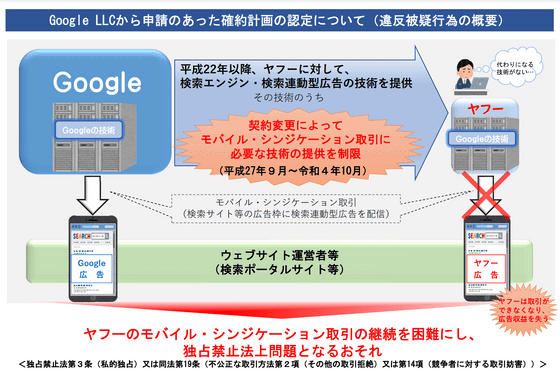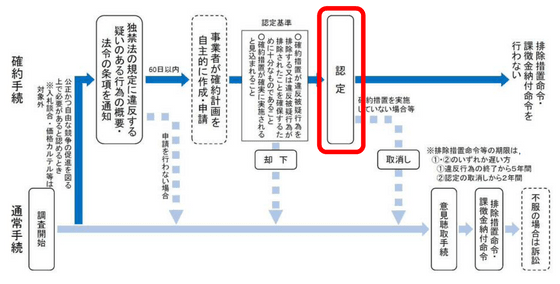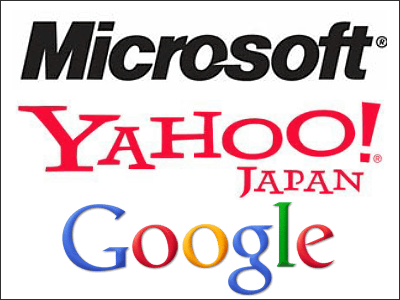Google avoids fines in Japan after engaging in suspected antitrust violations for seven years by voluntarily submitting a correction plan

Google has submitted a rectification plan to the Japan Fair Trade Commission in response to the issue of suspected violation of the Antimonopoly Act by withholding some of the technologies necessary for search engines and search advertising from Yahoo (now LINE Yahoo Japan Corporation). The Japan Fair Trade Commission found the plan to be appropriate and ceased its investigation.
(April 22, 2024) Regarding certification of commitment plan applied for by Google LLC | Fair Trade Commission
Google gets a warning from Japan's FTC after blocking Yahoo! • The Register
https://www.theregister.com/2024/04/22/google_yahoo_japan/
Japan's anti-monopoly body orders Google to fix ad search limits affecting Yahoo - Japan Today
https://japantoday.com/category/tech/japan%27s-anti-monopoly-body-orders-google-to-fix-ad-search-limits-affecting-yahoo
FTC takes action against Google over search ad deal with Yahoo | The Asahi Shimbun: Breaking News, Japan News and Analysis
https://www.asahi.com/ajw/articles/15241468
Google (NASDAQ:GOOGL) Accused of Anti-Competitive Practices in Japan - TipRanks.com
https://www.tipranks.com/news/google-nasdaqgoogl-accused-of-anti-competitive-practices-in-japan
Japan FTC gives Google chance to voluntary resolve dispute with Yahoo Japan - UPI.com
https://www.upi.com/Top_News/World-News/2024/04/22/8871713790026/
Google Press to reform search ad practices in Japan - The Mainichi
https://mainichi.jp/english/articles/20240422/p2g/00m/0bu/030000c
Japan Watchdog Says Google Hurts Local Rival's Ability to Compete - Bloomberg
https://www.bloomberg.com/news/articles/2024-04-22/japan-watchdog-says-google-hurt-local-rival-s-ability-to-compete
The problem in question was a ' mobile syndication transaction, ' in which website operators provide ad space to search-linked ad distributors in exchange for a portion of the advertising fees. Search-linked ad distributors such as Google and Yahoo! select relevant ads based on users' search queries and deliver them to websites' ad space, and receive advertising fees from advertisers according to user taps and distribute a portion of those fees to the websites.

Yahoo used to use search engine and search advertising technologies developed by Yahoo America, but in 2009 Yahoo America stopped developing search engine and search advertising technologies, so Yahoo started receiving technology from Google instead. Before the technology transfer began, the two companies checked with the Japan Fair Trade Commission to see if there were any issues under the Antimonopoly Act, and by explaining that 'even after the technology transfer, we will continue to operate the Internet search service and search advertising independently, and will continue to maintain a competitive relationship by keeping information such as advertisers and their bid prices completely separate,' Yahoo received a response from the Japan Fair Trade Commission that there were no issues.
The provision of technology began in 2010, but in 2014 Google changed the contract and did not provide Yahoo with the technology necessary for mobile syndication transactions for seven years, from 2015 to 2022. As a result, Yahoo was no longer able to compete with Google in the field of mobile syndication transactions, and the Japan Fair Trade Commission began an investigation into this action as it may be a violation of the Antimonopoly Act, including private monopoly.

In the investigation of violations of the Antimonopoly Act, the normal procedure is to first gather evidence, then go through a hearing procedure, and then move on to an exclusion order or a surcharge payment order. However, in this case, the 'commitment procedure' was adopted, which is a procedure in which the business operator and the Fair Trade Commission voluntarily resolve the suspected violation through agreement.
The Commitment Procedure is a procedure for the early correction of competitive problems, in which the Japan Fair Trade Commission notifies the business operator of the outline of the conduct and the provisions of the law at the time of 'suspected violation of the Antimonopoly Act,' and the business operator then prepares and submits a 'commitment plan' for correction. If the Commitment Plan is implemented and it is expected that the conduct suspected of violating the Antimonopoly Act will be eliminated, the Japan Fair Trade Commission will 'certify' the Commitment Plan.
If the commitment plan is approved in the commitment procedure, no cease and desist orders or surcharge orders will be issued. Since the Fair Trade Commission's announcement this time is that it 'approves Google's commitment plan,' no cease and desist orders or surcharge orders will be issued to Google.

According to the commitment plan, Google will not restrict the provision of mobile syndication transaction-related technology to Yahoo for the next three years, and will report the status of implementation to the Japan Fair Trade Commission annually.
Related Posts:
in Note, Posted by log1d_ts







